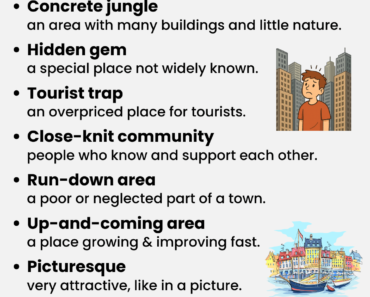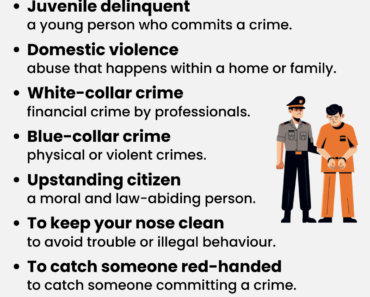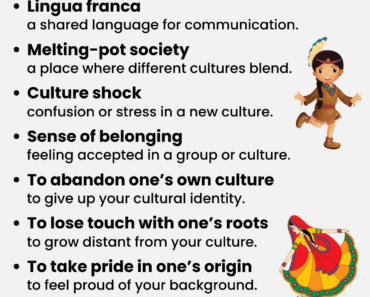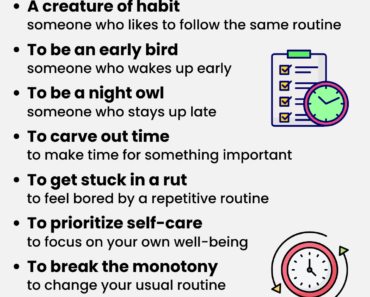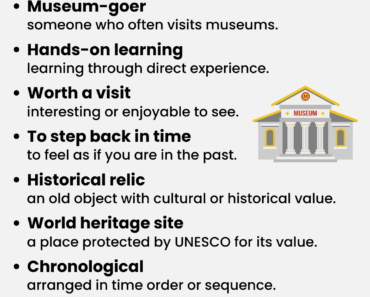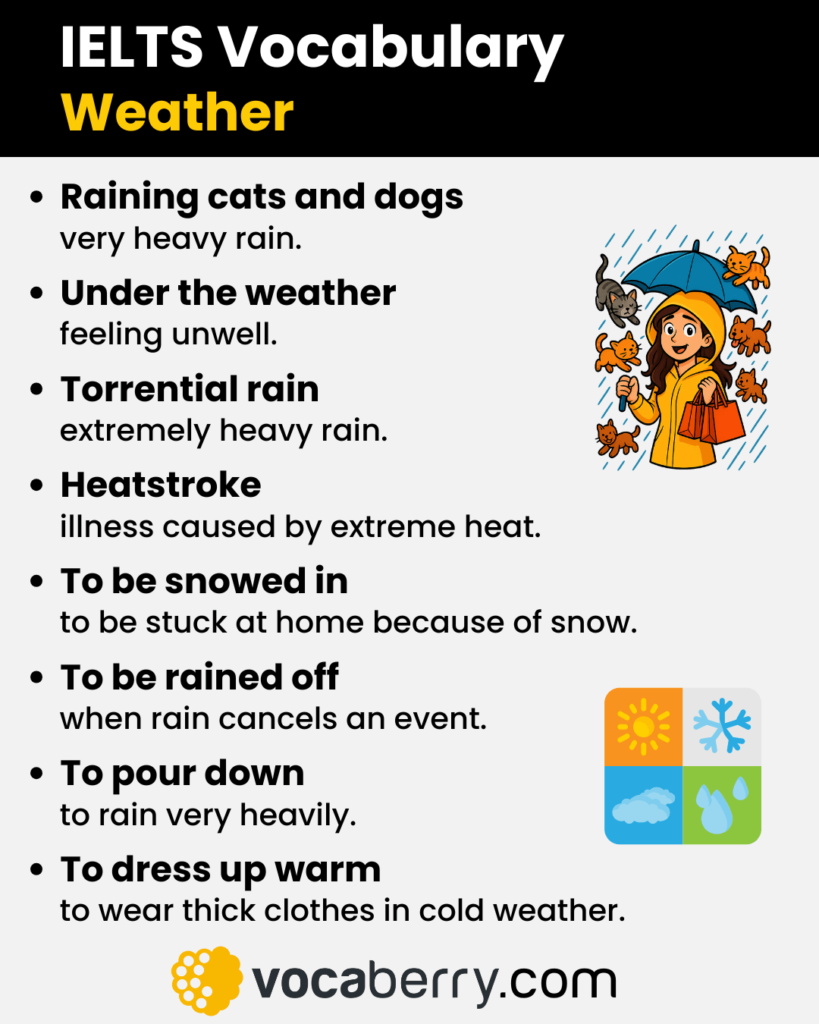
Weather is another popular topic in the IELTS Speaking test. Examiners may ask you about the climate in your country, your favourite type of weather, or how weather affects people’s daily lives. In this guide, you’ll find useful IELTS vocabulary for weather with clear definitions, followed by IELTS Speaking Part 1, Part 2, and Part 3 questions with sample answers.
IELTS Vocabulary for Weather
Here is some useful IELTS vocabulary for talking about weather with clear definitions. These words and phrases will help you give better answers in the IELTS Speaking test.
- Mild weather – not too hot or cold.
- Humid – hot and damp, with a lot of moisture.
- Dry climate – very little rain.
- Tropical climate – hot and humid, like near the equator.
- Arid – extremely dry with little rainfall.
- Freezing – very cold.
- Bitterly cold – extremely cold in an unpleasant way.
- Boiling / scorching hot – extremely hot.
- Crisp air – pleasantly fresh and cool.
- Drizzle – light rain.
- Shower – short period of rain.
- Heavy downpour – sudden, heavy rain.
- Pouring rain – very heavy rain.
- Torrential rain – extremely heavy, continuous rain.
- Thunderstorm – storm with lightning and thunder.
- Overcast – completely cloudy sky.
- Grey and gloomy – dull and depressing weather.
- Cold snap – a short spell of very cold weather.
- Sunny spells – short periods of sunshine.
- Clear skies – no clouds at all.
- Heatwave – unusually hot weather for a period of time.
- Heatstroke – illness caused by extreme heat.
- Stifling heat – hot and airless, hard to breathe.
- A cold spell – a short period of unusually cold weather.
- A heat spell – a short period of very hot weather.
- Blazing sun – very strong sunshine.
- Sweltering – uncomfortably hot.
- Sun-drenched – full of sunshine.
- UV rays – ultraviolet rays from the sun.
- Gale-force winds – extremely strong winds.
- Whiteout – snow so heavy you can’t see.
- Chilly breeze – cool wind.
- Snowfall – amount of snow coming down.
- Sleet – a mix of rain and snow.
- Snowstorm / blizzard – heavy snow with strong winds.
- Thunder and lightning – natural collocation, often tested.
- Long-range forecast – weather prediction for many days ahead.
- A blanket of snow – thick, continuous snow covering everything.
- The wind picks up/dies down – wind becomes stronger/weaker
- Thick fog – dense fog that makes it hard to see.
- Patchy fog – fog in some areas but not everywhere.
- Blustery – windy in an unpleasant way.
- Frostbite – injury from extreme cold.
- Icy roads – dangerous frozen roads.
- Driving rain – rain falling with strong wind.
- Indian summer – a period of warm weather in autumn.
- Climate change – long-term shifts in global weather.
- Global warming – gradual rise in Earth’s temperature.
- Changeable weather – weather that changes quickly.
- Unpredictable weather – weather that changes suddenly.
- A spell of good weather – a short period of nice weather.
- To dress up warm – to wear thick clothes in cold weather.
- To go below zero – when the temperature drops under 0°C.
- To get drenched / soaked – to be completely wet from rain.
- To get caught in the rain – to be outside when it rains.
- To clear up – when bad weather becomes better.
- To brighten up – when the weather becomes sunnier.
- To be snowed in – to be stuck at home because of snow.
- To bask in the sun – to relax and enjoy the sunshine.
- To come out (the sun) – when the sun appears.
- To be frozen to the bone – extremely cold.
- To be soaked to the skin – completely wet.
- To be rained off – when rain cancels an event.
- To be below freezing – colder than 0°C.
- To freeze over – when water turns into ice.
- To pour down – to rain very heavily.
- To thaw out – to warm up after being very cold.
- Under the weather – feeling unwell.
- Raining cats and dogs – very heavy rain.
IELTS Speaking: Weather Questions & Answers
In this section, you’ll find IELTS Speaking Part 1, Part 2, and Part 3 questions on weather with sample answers. These examples show how the weather vocabulary can be used in your responses during the test.
IELTS Speaking Part 1 – Weather
What’s the weather usually like in your country?
It’s quite mixed. Summers are often boiling hot with lots of clear skies, while winters bring the odd cold snap and even some snowfall. We also get plenty of drizzle and showers, especially in spring.
Do you prefer hot weather or cold weather?
I prefer cooler weather. I like the feeling of crisp air on a bright morning, and it’s easier to dress up warm than to deal with sweltering heat. Hot, humid days just make me feel tired.
Does the weather affect your daily routine?
Yes, quite a lot. When it’s raining cats and dogs, I usually avoid going out unless I have to. But on days with sunny spells or when it’s sun-drenched, I feel more energetic and like spending time outdoors.
Have you ever experienced extreme weather?
Yes, once there was a terrible thunderstorm with torrential rain and even driving rain. The streets quickly flooded, and by the next morning it was bitterly cold, so the roads turned into icy roads, which made travelling dangerous.
Do you often check the weather forecast?
Yes, almost every day. The weather here can be quite unpredictable, so I look at the long-range forecast before making plans. It helps me prepare, whether that means carrying an umbrella or getting ready for a possible heatwave.
IELTS Speaking Part 2 – Weather Cue Card
Describe a time when the weather changed your plans.
You should say:
- when it happened
- what the weather was like
- how it affected your plans
- and explain how you felt about it.
Sample Answer:
One of the most unforgettable times the weather affected my plans was last winter, when I was supposed to attend a friend’s birthday party. The forecast had mentioned a cold snap, but I didn’t expect it to be so extreme. On the day itself, the temperature went below freezing, and by the afternoon, there was a full snowstorm with blizzard-like conditions.
I had planned to take the bus across town, but the roads were covered with icy patches and the traffic was at a standstill. In fact, many people were completely snowed in, unable to leave their homes. I tried to head out anyway, but after a few minutes I was frozen to the bone. The wind was blustery, the visibility was almost zero because of the whiteout, and I quickly realized it just wasn’t safe to continue.
Instead of celebrating with my friends, I ended up at home, wrapped in blankets, drinking hot tea, and watching the snow pile up outside. At first, I felt really disappointed because I had been looking forward to the party for weeks. But in a way, it was also quite peaceful. Sitting by the window, watching the thick snowfall cover everything in a blanket of snow, made the evening strangely memorable.
Looking back, that day reminded me of how unpredictable the weather can be. No matter how much we plan, nature sometimes has the final say. It was inconvenient, but it also gave me a chance to slow down and appreciate the beauty of winter.
IELTS Speaking Part 3 – Weather Discussion
IELTS Speaking Part 3 questions about weather often ask you to compare different climates, discuss how weather influences lifestyle and culture, and give opinions on issues such as climate change and extreme weather conditions.
How does the weather affect people’s daily lives?
Weather plays a huge role in daily routines. For example, during a heatwave, people often struggle with stifling heat and even risk heatstroke, so they avoid going outside in the afternoon. On the other hand, when there’s pouring rain or a heavy downpour, many outdoor activities get rained off, and traffic usually becomes worse. Even simple things like choosing what to wear depend on whether it’s crisp air in autumn or bitterly cold in winter.
Do you think climate change is affecting the weather in your country?
Yes, definitely. In recent years, the climate has become more unpredictable. We sometimes have an Indian summer with unusually warm days in October, followed by a sudden cold snap in November. Storms have also become more frequent, bringing gale-force winds and torrential rain. These extreme conditions suggest that climate change and global warming are already influencing our local weather patterns.
Which do you think is worse, very hot weather or very cold weather?
I’d say extremely hot weather is harder to cope with. During a heat spell, you feel exhausted, and the sweltering temperatures make it almost impossible to concentrate. At least in freezing or bitterly cold weather, you can dress up warm and manage. But when the blazing sun is beating down all day, even staying indoors feels uncomfortable.
How has modern technology helped people deal with extreme weather?
Technology has made a big difference. With a long-range forecast, people can prepare for snowstorms or heatwaves in advance. Apps on our phones give up-to-the-minute forecasts, so if there’s driving rain or thunder and lightning, we can change our plans quickly. Even simple things like air conditioning during stifling heat or heating systems during a cold spell show how technology protects us from extreme conditions.
More IELTS Vocabulary Topics
If you found this lesson useful, explore other IELTS Speaking topics to expand your vocabulary and practice with sample answers:
- IELTS Vocabulary: Accommodation
- IELTS Vocabulary: Advertisement
- IELTS Vocabulary: Animals
- IELTS Vocabulary: Art
- IELTS Vocabulary: Artificial Intelligence
- IELTS Vocabulary: Books
- IELTS Vocabulary: Childhood
- IELTS Vocabulary: Crime and Punishment
- IELTS Vocabulary: Culture and Traditions
- IELTS Vocabulary: Daily Routine
- IELTS Vocabulary: Education
- IELTS Vocabulary: Environment
- IELTS Vocabulary: Family
- IELTS Vocabulary: Fashion and Clothes
- IELTS Vocabulary: Films
- IELTS Vocabulary: Food & Diet
- IELTS Vocabulary: Friends
- IELTS Vocabulary: Gifts
- IELTS Vocabulary: Health
- IELTS Vocabulary: Hobbies
- IELTS Vocabulary: Hometown
- IELTS Vocabulary: Money
- IELTS Vocabulary: Museums
- IELTS Vocabulary: Music
- IELTS Vocabulary: Plants
- IELTS Vocabulary: Shopping
- IELTS Vocabulary: Social Media
- IELTS Vocabulary: Sports
- IELTS Vocabulary: Technology
- IELTS Vocabulary: Transport
- IELTS Vocabulary: Travel
- IELTS Vocabulary: Work & Jobs

